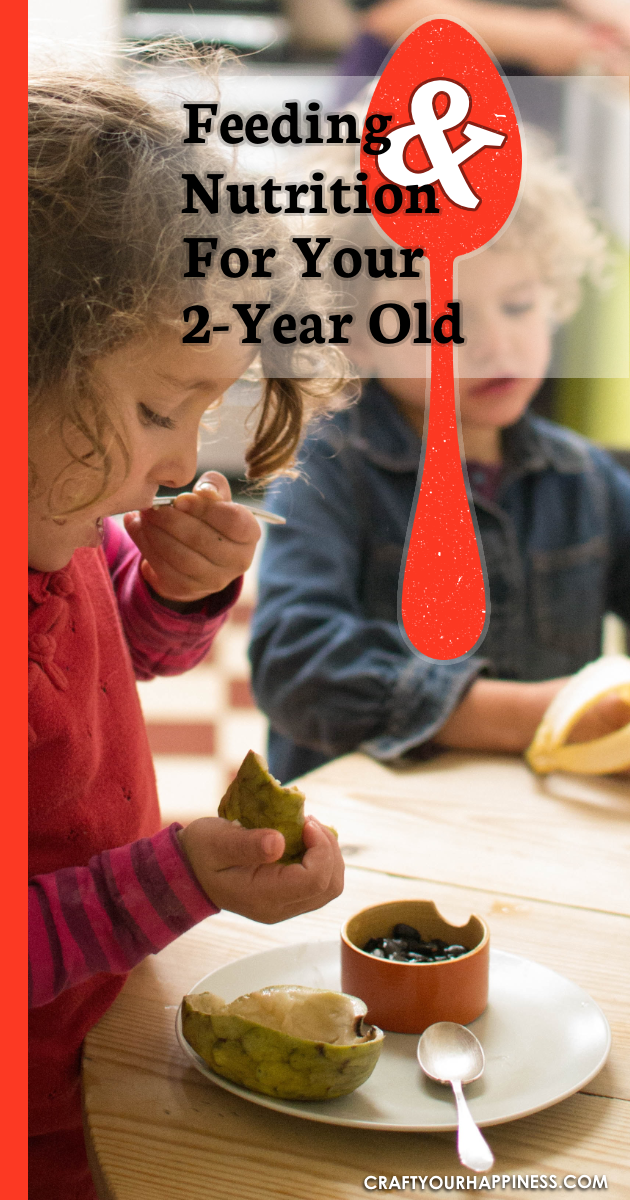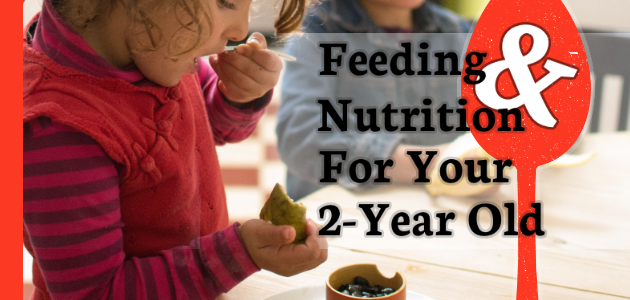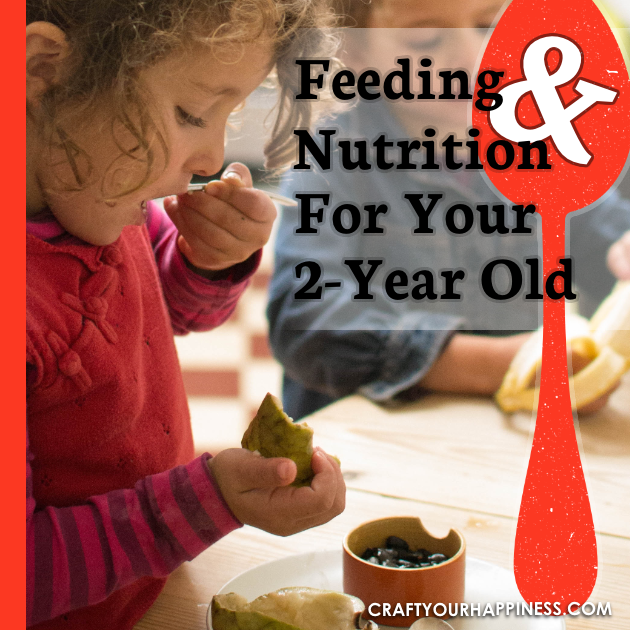
By age two, your child should have three healthy meals and one or two snacks a day. They can have the same food as everyone else in the family. You should not fixate on amounts. Focus on adopting healthy eating habits which includes sitting as a family while having a meal. By this age, your child’s social skills should be improved enough to be an active participant at the time of the meal. However, for some of you, it might feel like a battle to feed your 2-year-old. Here are some feeding and nutrition tips for your little one that will also help you to end feeding difficulties.
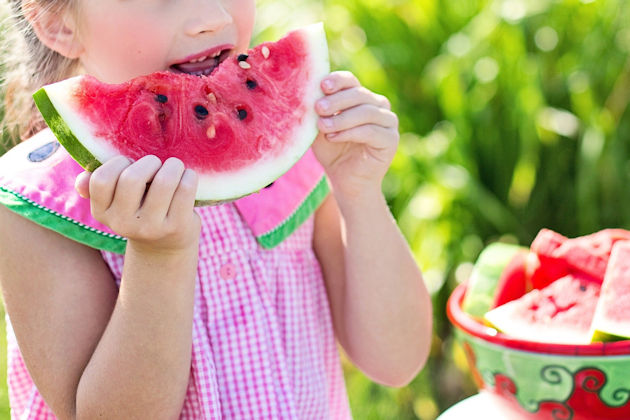
1. Schedule Meals and Snacks
Routine is extremely necessary for toddlers. They feel secure and more in control when they know what’s coming next for them. Create a routine based on your family’s schedule. Begin early by having them eat within 30-60 minutes of waking up. If your child is an early riser, give them breakfast when you want them to wake up. This may encourage them to sleep longer. Their little metabolism systems are scheduled to wake them up when they are habituated to have meals. Try to serve a meal or snack every 2-3 hours after breakfast. Observe your child’s habits for some days and schedule snack and meal times around when they’re hungry. Do not forget to offer water between meals. However, avoid offering other drinks like juice or milk during this time. Kids this age will snack all day and fill up on fluids if you allow them. This can lead to frustration and food battles when mealtime comes as your child won’t be hungry for a full meal.
If your toddler asks for snacks in bed, you should serve a filling nighttime snack before bedtime. Warm milk and oatmeal can be a good option for this. It may be hard to deny your toddler food between mealtimes. A spirited toddler may even put up a fight and start crying! You must remain calm and remind them of when they will be having their next meal. Be consistent for a little while and soon you will find them adjusting to the schedule.
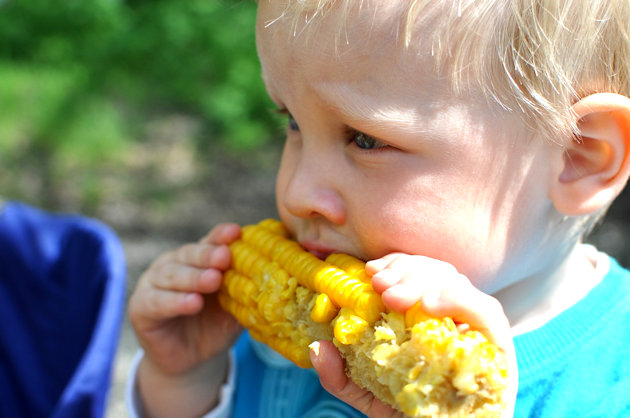
2. Offer Variety
As the parent, you are to decide which food is offered at snack time and meals. We advise you to focus on balance and variety of food rather than stressing after the perfect meal. Consider including carbohydrates, some fat, some protein, and a vegetable or fruit. Ensure that your kiddo eats from the four basic food groups every day:
- Fish, meat, eggs, poultry
- Cheese, milk, and other dairy products
- Vegetables and fruits
- Potatoes, cereals, rice, and flour products
Want to know some healthy lunch ideas for toddlers? Follow the link.
You do not need to panic if they aren’t always meeting this ideal. Some kids are very picky, but the more you fight with them, the more adamant they will be to defy you. Instead, offer your child a variety of food and eventually, you will find them having a balanced diet on their own. Toddlers also like to try the food on their own, so try offering them various finger foods that are safe and easy for them to eat.
Finally, include some fun foods like ice cream, cake, cookies, and other special treats with regular snacks and meals. However, do not make a big deal about them. If you allow your kid access to all kinds of food from an early age without the message that some foods are good or some are bad, they will take them in proper quantities with confidence. Further, do not reward your kids with food every time. Switch up your rewards with non-food items like tv time, toys, or whatever is suitable for your kid.
3. Unsafe Foods for Toddlers
At the age of two, your child will still be learning to chew and swallow foods. For this reason, the chance of choking is high. Avoid foods like nuts, especially peanuts, gum, round and hard candies, raw cherries with pits, marshmallows, whole grapes, popcorn, raw carrots, seeds, or large pieces of any food such as potatoes, meat, raw fruits, and vegetables. These items can be swallowed whole and block the windpipe.
4. Supplementation for Some Toddles
Vitamin supplements are a rare necessity for children who consume a varied diet. However, your child may need iron supplements if they eat very little iron-fortified cereal, meat, or iron-rich vegetables. Large amounts of milk, more than 960 mL per day, can also interfere with proper iron absorption which can lead to iron-deficiency anemia. A child should not drink more than 480 mL of milk each day. It will supply most of the calcium they require for the growth of their bones and won’t interfere with their appetite for other kinds of food especially those that supply iron. If your child is not having adequate vitamin D in their diet or is not exposed to sunlight regularly, consider discussing with your pediatrician about a vitamin D supplement. Otherwise, they can be at risk of rickets— a clinical condition characterized by the weakening and softening of bones.

5. Offer Them the Same Food That Other Family Members are Eating
Your toddler is capable of eating what other family members are eating. If they resist them at first, it means they need some time to get used to the new rules and routines. If they insist on having a particular item, remain calm and try to make them understand that you don’t have it at home and they can have it some other day. Of course, they may not stop the tantrums immediately, but eventually, they will learn to adjust. Maybe your toddler isn’t complaining about food choices, but you’re anxious that they may not be able to eat some mixed food items you cook. You can always separate the cooked ingredients and cut them up.
6. Allow Some Options, But Not Too Many
Children are control freaks. They appreciate any choice and control we allow them. But when it comes to meals, things can get out of hand. If you allow your child too many choices about when to eat or what to eat, eventually they will start eating without variety. Oppositely, if you do not give them any choices at all, they will be more resistant to the meals. Find a proper balance by offering them small choices like which of two fruits they want to eat, which plate they want, or what cup they would like to use. The main thing here is to allow options where you will feel comfortable regardless of which option your little one chooses.
Do not directly ask them what they want to eat for a particular meal at this age. They may ask for items that you are not happy with or may start a fight when you try to offer new items. Again, you are the one in charge of what is to offer or when to offer it. They are in charge of choosing what they want to eat from what’s offered and how much they want to eat. If you are willing to give them more freedom, you can go for family-style meals. In other words, take out all your main and side dishes and put them on the table, and help them pick and serve themselves from what is cooked.
7. Be Prepared and Flexible
All these tips have room for flexibility. Things like daycare, traveling, and missing snacks during nap time happen. Try to be flexible with your schedule. It is not necessary for your child to eat at the exact same time every day, instead, you should offer them food about every 2-3 hours. Similarly, if your daycare has a separate routine than you, try to adjust your weekend routine to their daycare routine as much as possible. You can also have a discussion with your toddler’s caretaker about their eating routines if possible.
Lastly, you do not need to put too much pressure on yourself for cooking the perfect homemade meals from 100% whole foods. Your child has grown up enough to handle and process different kinds of foods. It is not wrong to keep packed snacks on hand for errands out and car rides. Moreover, it is necessary a lot of times. So, do whatever works best for you.
8. Remain Calm
We have mentioned this throughout, but this needs to be mentioned again. This age group can cause a lot of stress. But the more you remain calm, the more you will be able to manage them. Punishing or yelling around mealtime will only make them feel insecure and they may skip the meal as well. Your toddler is a learner at this age which includes food behavior too. We may not control their behavior and reactions, but we can certainly control ours.
In conclusion, nutrition is always a top priority. As you put these tips in place and walk through this difficult path of training your kid while maintaining your sanity, feeding.
